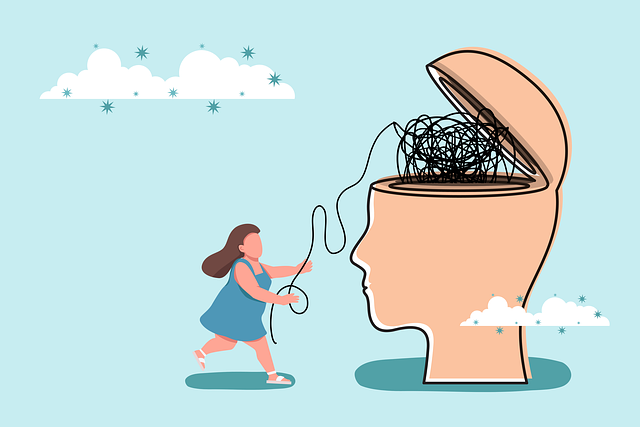Resilience, Flexibility, and Mastery (RFM) is an innovative therapy approach designed to build inner strength in young children dealing with interpersonal issues, enhancing their emotional well-being and relationships. Through play, storytelling, mindfulness meditation, and structured activities like role-playing, RFM improves adaptability, emotion regulation, and positive coping strategies. This holistic method contributes to mental health coaching programs, empowering kids to express themselves and navigate social settings effectively.
Resilience is a vital asset for young children to thrive in today’s challenges. The RFM (Strengths, Weaknesses, and Motivators) model offers a structured approach to understanding and enhancing resilience. This article explores how implementing resilience-building exercises within therapy sessions can empower kids to navigate interpersonal issues effectively. By focusing on their strengths, identifying weaknesses, and leveraging motivators, therapists can guide young clients towards fostering adaptability and emotional fortitude. Discover practical strategies to integrate these exercises into therapy for meaningful impact.
- Understanding RFM and Its Benefits for Young Children
- Implementing Resilience-Building Exercises in Therapy Sessions
- Overcoming Interpersonal Issues through Structured Activities
Understanding RFM and Its Benefits for Young Children

Resilience is a vital asset for young children to develop as they navigate their interpersonal relationships and emotional well-being. RFM (Resilience, Flexibility, and Mastery) is an innovative approach designed specifically to foster this inner strength development in children. By implementing exercises that promote resilience, therapy for young children with interpersonal issues becomes more effective and comprehensive.
The benefits of RFM are significant, addressing the growing need for mental health policy analysis and advocacy. These exercises enhance a child’s ability to adapt to challenging situations, manage emotions, and develop positive coping strategies. Through play, storytelling, and interactive activities, children learn valuable skills that contribute to their overall mental health and public awareness campaigns development, enabling them to better understand and express themselves in social settings.
Implementing Resilience-Building Exercises in Therapy Sessions

Resilience-building exercises play a pivotal role in fostering adaptability and emotional strength, especially for young children navigating interpersonal issues within therapy sessions. These exercises go beyond traditional talk therapy by providing practical tools to cope with challenges, enhance self-esteem, and promote positive interactions with peers. Through playful activities and guided practices, therapists can help children develop a sense of control over their emotions and reactions, empowering them to tackle social situations with confidence.
Incorporating techniques like mindfulness meditation and stress management workshops into therapy routines allows for a holistic approach. These strategies not only improve self-esteem but also teach children valuable skills to regulate stress, fostering a sense of calm in chaotic moments. By integrating these practices, therapists can create a safe and supportive environment where young clients feel empowered to express themselves freely, leading to more productive therapy sessions and significant interpersonal improvements.
Overcoming Interpersonal Issues through Structured Activities

Overcoming interpersonal issues is a vital aspect of holistic development, especially for young children. Structured activities and exercises play a crucial role in fostering positive interactions and enhancing social skills training. Many times, therapy for young children with interpersonal problems involves creative approaches to help them express emotions, build confidence, and improve communication. This process can be highly effective when tailored to their age group and integrated into their learning environment.
Implementing structured activities like role-playing scenarios, group discussions, or team building exercises enables mental wellness coaching programs development. These initiatives not only offer a safe space for children to explore social interactions but also teach them valuable risk management planning for mental health professionals. By engaging in such activities, young individuals can develop resilience and learn to navigate interpersonal challenges, ultimately promoting their mental health and well-being.
Resilience is a vital asset for young children’s development, and integrating RFM (Resilience-Building Exercises) into therapy sessions offers a structured approach to fostering this quality. By engaging in specific exercises that promote emotional understanding and coping strategies, therapists can effectively address interpersonal issues. These activities not only enhance a child’s ability to navigate challenging situations but also provide them with valuable tools for long-term mental health. Implementing RFM is a game-changer in therapy, ensuring children develop the resilience needed to thrive in today’s dynamic world.














